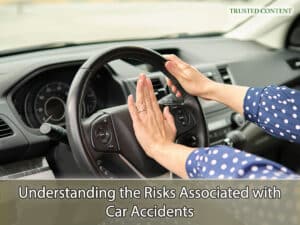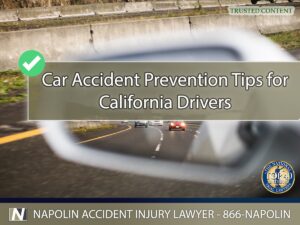Essential Car Accident Prevention Tips for Ontario, California Drivers
Car accidents are a significant concern in California, with countless incidents occurring each year. Preventing these accidents requires a combination of awareness, education, and adherence to safe driving practices. This article aims to provide essential tips for preventing car accidents, ensuring the safety of all road users in southern California.
The Perils of Distracted Driving and Legal Insights
Distracted driving is one of the leading causes of car accidents. Whether it’s texting, talking on the phone, eating, or using a navigation system, any activity that diverts attention from driving can be hazardous. According to recent statistics, a substantial percentage of car accidents in California are caused by driver distractions.
California law strictly prohibits the use of handheld devices while driving. Violating these laws can result in significant fines and penalties. More importantly, distracted driving endangers lives, making it crucial to stay focused on the road at all times.
Driving Under Influence: A Double Threat to Safety
Driving under the influence (DUI) of alcohol or drugs is another major cause of car accidents. Impaired drivers have reduced reaction times, poor judgment, and decreased motor skills, leading to catastrophic accidents.
In California, DUI offenses carry severe penalties, including hefty fines, license suspension, and even imprisonment. Beyond the legal consequences, driving under the influence poses a significant risk to the driver, passengers, and other road users. To prevent such tragedies, always designate a sober driver or use alternative transportation options if you have consumed alcohol or drugs.
Defensive Driving: The First Line of Defense
Defensive driving is a proactive approach to avoid accidents by anticipating potential hazards and making safe decisions on the road. This technique involves being aware of other drivers’ actions and adjusting your driving accordingly.
Key defensive driving practices include maintaining a safe following distance, obeying speed limits, and being vigilant at intersections. Additionally, always use turn signals, check blind spots, and be prepared for unexpected actions by other drivers. By practicing defensive driving, you can significantly reduce the risk of accidents.
The Critical Role of Speed Management
Speeding is a major factor in many car accidents, often exacerbating the severity of crashes. Higher speeds reduce the time available to react to unexpected situations and increase the impact force during collisions.
California enforces strict speed limit laws to enhance road safety. Exceeding these limits not only increases the likelihood of accidents but also leads to severe penalties, including fines and points on your driving record. Adhering to speed limits and adjusting your speed according to road conditions are vital steps in preventing accidents.

Ensuring Vehicle Safety through Regular Maintenance
Ensuring Vehicle Safety through Regular Maintenance
Regular vehicle maintenance is crucial for preventing mechanical failures that can lead to accidents. Ensuring that your vehicle is in good working condition helps you avoid unexpected breakdowns and enhances overall safety.
Key Maintenance Checks for Vehicle Safety
- Brakes: Inspect and service regularly to ensure optimal stopping power.
- Tires: Check for proper inflation, tread depth, and alignment.
- Lights: Ensure all headlights, taillights, and signal lights are functioning.
- Fluids: Regularly check and refill engine oil, brake fluid, transmission fluid, and coolant.
- Battery: Test the battery's charge and clean any corrosion on the terminals.
Routine maintenance not only ensures your vehicle’s reliability but also improves fuel efficiency and prolongs the vehicle’s lifespan. Neglecting maintenance can result in dangerous situations, such as brake failures or tire blowouts, which can cause serious accidents.
Seat Belts and Safety Features: Your Safety Net
Seat belts and modern vehicle safety features play a crucial role in protecting occupants during accidents. California law mandates the use of seat belts for all vehicle occupants. Wearing a seat belt significantly reduces the risk of injury or death in the event of an accident. Additionally, many vehicles are equipped with advanced safety features such as airbags, anti-lock brakes, and electronic stability control. These technologies are designed to prevent accidents and protect occupants when collisions occur. Always ensure that you and your passengers are properly restrained and familiarize yourself with your vehicle’s safety features.
Specific Challenges Faced by Young Drivers and Educational Strategies
Young and inexperienced drivers face unique challenges on the road. Lack of experience, overconfidence, and susceptibility to distractions contribute to a higher risk of accidents among teenage drivers. Educational programs and resources tailored for young drivers are essential in promoting safe driving habits. These programs often focus on the dangers of distracted driving, the importance of following traffic laws, and the benefits of defensive driving. Parents and guardians should also play an active role in mentoring young drivers and reinforcing safe driving practices.
Navigating Weather-Related Driving Challenges
Southern California's weather can be unpredictable, with conditions ranging from heavy rain to dense fog. Adverse weather significantly increases the risk of accidents, making it essential for drivers to adjust their driving habits accordingly.
Safety Tips for Driving in Adverse Weather
When driving in rain, ensure your windshield wipers are in good condition and your headlights are on to increase visibility. Reduce your speed to maintain better control of your vehicle and increase your following distance to allow more time to react to sudden stops. In foggy conditions, use your low-beam headlights and fog lights, and avoid using high beams as they can reflect off the fog and impair visibility further. Always proceed with caution and be prepared for sudden changes in weather.
California law requires drivers to use headlights during inclement weather conditions, including rain, snow, and fog. Failing to comply with these requirements can result in fines and increase the risk of accidents. It is crucial to stay informed about weather forecasts and plan your trips accordingly to ensure safe travel.
Intersection Safety: Navigating Busy Crossroads
Intersections are common sites for accidents due to the convergence of multiple traffic flows. Understanding how to navigate intersections safely can significantly reduce the risk of collisions. Accidents at intersections often occur due to running red lights, making improper turns, or failing to yield the right of way. These scenarios can lead to severe side-impact collisions, which are particularly dangerous for vehicle occupants.
Always approach intersections with caution, reduce your speed, and be prepared to stop if the traffic signal changes. Observe all traffic signals and signs, and ensure you yield the right of way when required. When making a turn, use your turn signals well in advance and check for oncoming traffic and pedestrians. By following these practices, you can minimize the risk of intersection-related accidents.

Understanding the Risks Associated with Car Accidents
Understanding the Risks Associated with Car Accidents
Car accidents can have far-reaching consequences beyond the immediate physical damage. Understanding these risks is essential for adopting safer driving habits and reducing accident rates.
Financial and Emotional Impact
Car accidents can lead to significant financial burdens, including medical bills, vehicle repair costs, and potential legal fees. Additionally, victims may face emotional trauma, stress, and long-term psychological effects.
Impact on Insurance Rates
Involvement in a car accident often results in increased insurance premiums. Even minor accidents can lead to substantial hikes in rates, impacting a driver’s financial situation for years.
Loss of Driving Privileges
Serious accidents or repeated traffic violations can result in the suspension or revocation of driving privileges. This loss can affect an individual's ability to commute, work, and perform daily activities.
Legal Consequences
Drivers at fault in accidents may face legal consequences, including lawsuits for damages and injuries. In severe cases, criminal charges such as vehicular manslaughter may be filed, leading to incarceration and a permanent criminal record.
Long-term Physical Rehabilitation
Severe accidents often result in long-term physical injuries requiring extensive rehabilitation. Victims may need ongoing medical treatment, physical therapy, and may suffer from chronic pain or permanent disabilities.
A Guide to Accident Prevention
Preventing car accidents requires a multi-faceted approach. Here is a summarized guide to the main points discussed in this article:
- Stay Focused: Avoid distractions such as texting or eating while driving. Keep your attention on the road to prevent accidents.
- Drive Sober: Never drive under the influence of alcohol or drugs. Utilize alternative transportation options if needed.
- Practice Defensive Driving: Be aware of other drivers, maintain a safe distance, and anticipate potential hazards.
- Manage Your Speed: Adhere to speed limits and adjust your speed according to road conditions.
- Regular Vehicle Maintenance: Ensure your vehicle is in good working condition by regularly checking brakes, tires, lights, fluids, and the battery.
- Use Safety Features: Always wear seat belts and familiarize yourself with your vehicle’s safety features, such as airbags and electronic stability control.
- Navigate Intersections Safely: Approach intersections with caution, obey traffic signals, and yield the right of way when required.
- Adjust for Weather Conditions: Drive carefully in adverse weather by reducing speed, using headlights, and increasing following distance.
- Educate Young Drivers: Provide young and inexperienced drivers with proper education and resources to develop safe driving habits.
By following these comprehensive tips, drivers can significantly reduce the risk of car accidents and enhance overall road safety.

Essential Car Accident Prevention Tips for Ontario, California Drivers
Essential Car Accident Prevention Tips for Ontario, California Drivers
Preventing car accidents in southern California requires a comprehensive understanding of the risks and a commitment to safe driving practices. By focusing on defensive driving, maintaining your vehicle, and adhering to traffic laws, you can significantly reduce the likelihood of accidents and protect yourself and others on the road. At Napolin Accident Injury Lawyer, we understand the challenges faced by accident victims and are dedicated to providing expert legal assistance. If you have been injured in a car accident, contact us at (909) 962-8415 for a free consultation. Our extensive litigation experience and commitment to our clients ensure that you receive the best possible representation. Don’t wait—secure the legal help you need today to protect your rights and achieve the compensation you deserve.
